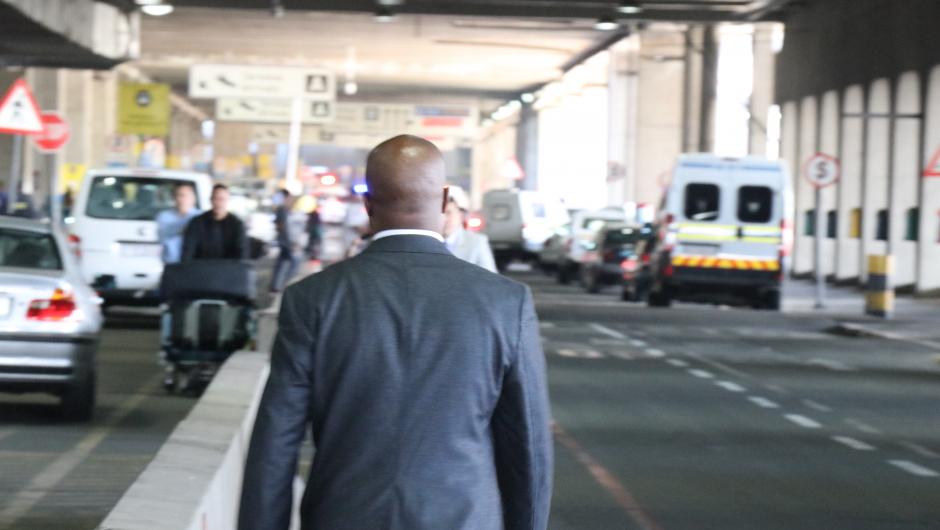Take a Moment for Afri-Optimism

It is a mere few years ago that the world spoke about “Africa Rising”, and investors were queueing up to invest in the continent. As so often with such slogans, reality was a bit bleaker. Economic growth wasn’t quite as high as expected (alongside the global economic growth), commodity prices went down, and in several countries politicians failed to clean-up their act to allow more democracy, curtail corruption and protect human rights. But beside these woes there are signs that Africa may be about to turn a new leaf – and certainly many African citizens leave no doubt that this is precisely what they want. Let us spare a moment for optimism about Africa.
Economic growth, according to the World Bank, doubled in 2017 to 2.6% - not quite high enough in view of the population growth of 2.7%, but a real improvement nonetheless. Even more encouraging, are underlying developments that may come to fruition as early as this or next year.
New technologies are empowering citizens as never before. Increased use of smartphones, a growing start-up scene, decreasing internet costs and an emerging tech scene ensure that entrepreneurial initiatives and citizens communications are more democratic than ever before, and much harder to control by busy-bodying state officials. Sure, some African governments are looking at ways to control the internet, but in the long run this is likely to be a losing battle. Currently just about 10% of Africans are wired, but the figure is rising rapidly offering even the opportunity of Africans leapfrogging the rest of the world in adopting technologies such as Blockchain. New innovations include M-Shwari that offers paperless mobile banking in Kenya. In Côte d’Ivoire, Tanzania, Somalia, Uganda and Zimbabwe, more people have mobile money accounts than bank accounts.
Secondly, there is a new African pride. We see it in consumerism, and a growing preference for African fashion, arts, crafts and culture. But equally in a growing appreciation of the African heritage, for example in preserving nature and fighting eco-negligence. Apps have been developed to counter illegal deforestation and the poaching of rhinos, the Kenyan government completely banned plastic bags, Cape Verde has pledged to run on 100% renewable energy by 2025. Gradually this African pride will influence consumer choices and stimulate local innovation. Add to this that Africa is a young continent, with more young people than anywhere else in the world, and has a growing middle class, with one third of Africans considered part of it by the African Development Bank and a billion Africans expected to join them by 2060.
Thirdly, democracy in Africa has shown potential. There are certainly worrying developments, especially in East Africa and the Sahel where autocratic governments become more entrenched, and a number of so-called referenda intended to extend the presidential terms of sitting presidents, and in many places human rights are at best an afterthought. But, on the whole, developments in West Africa are promising, most recently in The Gambia where the autocratic president Yahya Jammeh was astonishingly ousted in elections. And more southwards the past year has seen a remarkable change of leaders in Angola, Zimbabwe and South Africa, and although there is good reason to be sceptical about some of these, without doubt the situation is much less gloomy than twelve months ago. Elections have also become harder to rig thanks to social media. This has led to a general improvement in governance. Five of the ten fastest reformers in the World Bank’s report on the ease of doing business are African. Since 2000 the proportion of Africans living in absolute poverty has fallen from 58% to 41%, and primary-school enrolment has risen from 60% to 80%. Annual malaria deaths have fallen, by more than 60%.
Finally, one of the most encouraging developments is a decline in violence. Although terrorists like Boko Haram in Nigeria and Al-Shabaab in Somalia still pose significant problems, and South Sudan, the Central African Republic and one or two others continue to be in chaos, in the past decade or so the number of armed conflicts has decreased from around thirty to not more than a dozen today. Geneva Convention’s top ten list of most violent countries includes just two in Africa (Lesotho and Swaziland). On the whole, life for citizens has improved.
Let’s not get carried away as these are only green shoots. A lot of it depends on civil society and brave opposition politicians in keeping or getting an often stale political class on the right track. It is only a beginning, and most of the hard work still has to be done. Clearly there is a way forward, if Africa wants to be free to advance.
Jules Maaten, Regional Director for sub-Sahara Africa of the Friedrich Naumann Foundation for Freedom